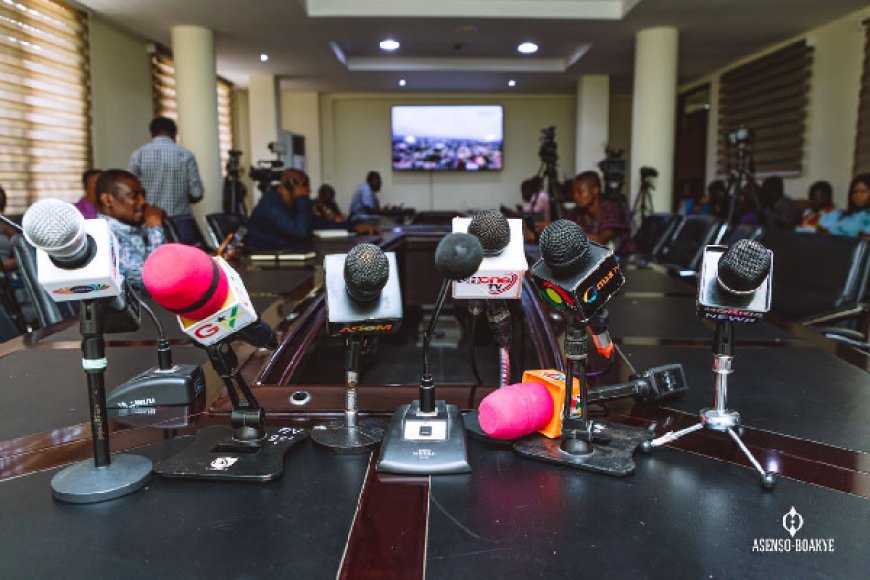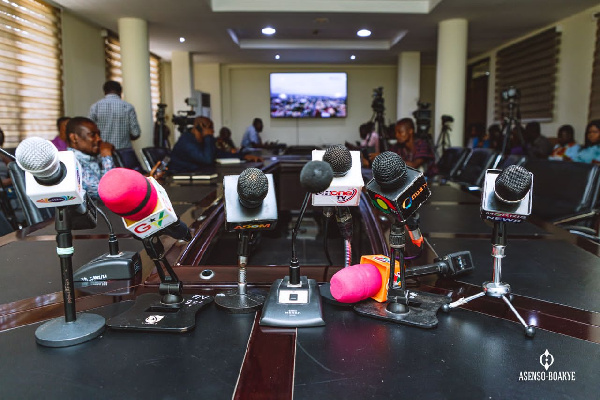Journalists urged to increase conversation around sexual reproductive health, rights
Journalists urged to increase conversation around sexual ... GhanaWeb

Journalists Urged to Prioritize Adolescent Sexual and Reproductive Health and Rights (ASRHR) for Sustainable Development

Journalists and media practitioners have been urged to develop interest, prioritize, and increase conversations around Adolescent Sexual and Reproductive Health and Rights (ASRHR) to promote sustainable development.
These conversations should be targeted at providing accurate education and information for young people regarding their sexual and reproductive health and rights to cause behavior change and influence stakeholders to undertake reforms of some cultural practices and policies.
This would contribute to addressing challenges confronting the growth and development of adolescents, including ending teenage pregnancy, child marriage, and harmful cultural practices among other forms of gender-based violence to promote gender parity and contribute to the achievement of the Sustainable Development Goals (SDGs).
Training for Journalists on ASRHR
Richard Amoani, the National Coordinator of Forum for African Women Educationalists Ghana (FAWE-GH), a Non-Governmental Organization, made the call during a three-day training for journalists on ASRHR, held at Zuarungu in the Bolgatanga East District of the Upper East Region.
The training was organized by FAWE-GH as part of the implementation of a five-year Sexual Health and Reproductive Education (SHARE) project by a consortium, led by Right to Play and supported by WaterAid Ghana, FHI360, and FAWE-GH with funding support from the Global Affairs Canada.
The project being rolled out in the Kassena-Nankana and Builsa North Municipals, and Kassena-Nankana West and Bongo Districts aims to advance gender equality by providing access to age-appropriate sexual and reproductive education and gender-responsive care for young people, especially girls and young women.
It is benefiting 200 schools in 78 Electoral Areas in the four districts.
Addressing Challenges in Rural Communities
Mr. Amoani explained that access to accurate sexual and reproductive health and rights by adolescents in rural communities continued to be a major challenge and underscored the critical role of the media in confronting the challenges.
He said parental irresponsibility has been identified as a major cause of risky behavior of adolescents leading to teenage pregnancies and child marriage among others and urged parents to not allow poverty to deny the proper upbringing of their children.
“Poverty is not an excuse enough for your child to be pregnant because we have seen parents who did not have anything, but their children have risen to prominent positions in our society because there was always a bond between the parents and the children,” he said.
Importance of Gender-Responsive Policies
The National Coordinator said data from the Ghana Statistical Service had shown that the country was at risk of not achieving certain targets of the SDGs, particularly goals four and five which emphasized equal access to quality education and gender parity respectively by 2030 due to the numerous challenges facing young people, particularly young women and girls.
He therefore called for gender-responsive policies in all sectors, particularly in education, that involved the collective approach, adding that such a move would not only contribute to creating awareness for people to take advantage of such policies but would help attain gender equality.
Media’s Role in Reporting ASRHR
Kwesi Ghartey-Tagoe, Media Consultant, Communication for Development, said although some progress had been made and the media contributed to such achievement, not much had been done and appealed to the journalists to be interested and report on issues of ASRHR.
“We report, but it is on the surface, people are not aware of the real issues on the ground, and so journalists can do better by identifying key areas and reporting consistently on them,” he added.

Join us, as fellow seekers of change, on a transformative journey at https://sdgtalks.ai/welcome, where you can become a member and actively contribute to shaping a brighter future.







